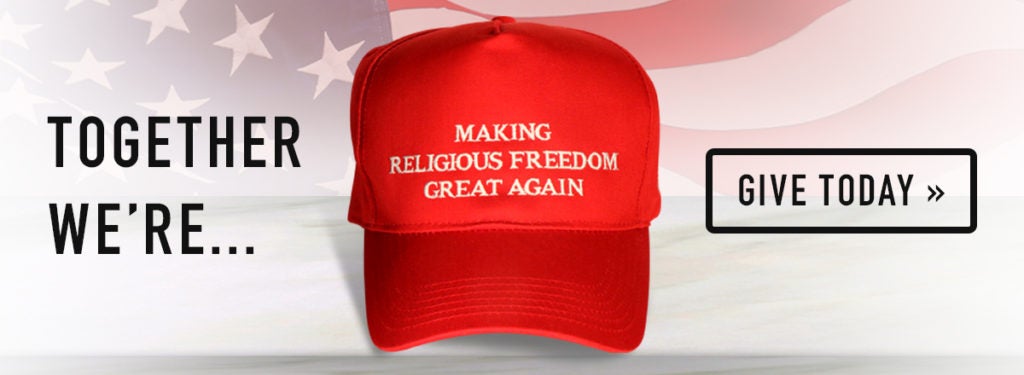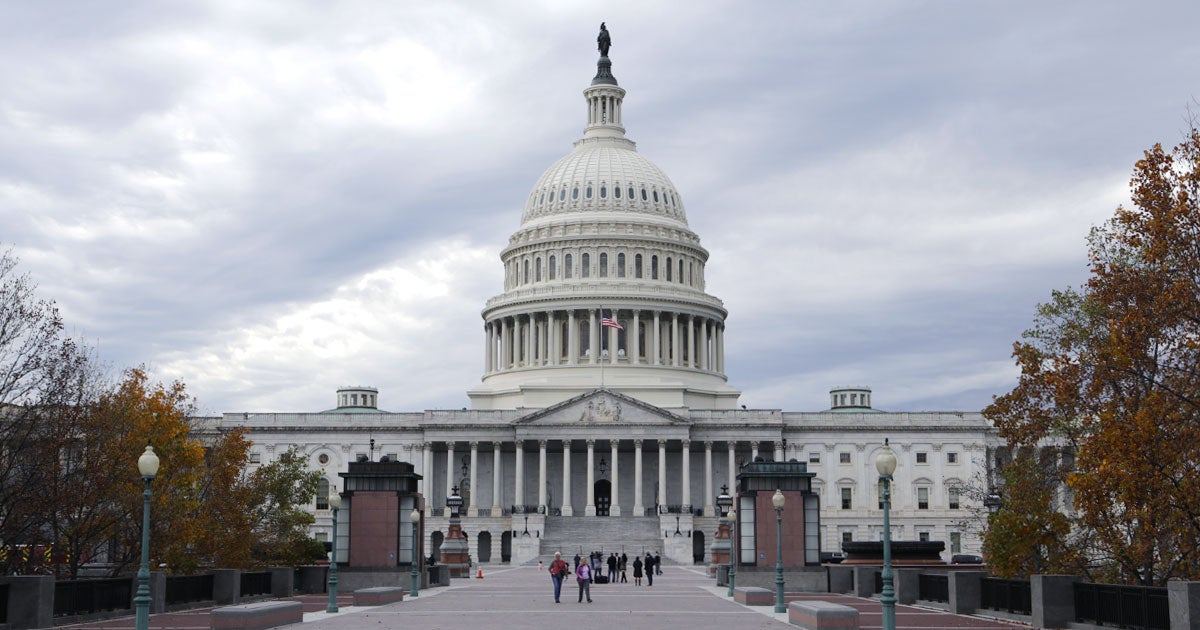by Jorge Gomez • 7 min read
Looking back at the first few weeks of the year, supporters of religious freedom probably couldn’t have asked for a better start to 2020.
At the same time that we’re achieving incredible legal victories, our attorneys in our Washington D.C. office are also fighting on the front lines of our nation’s capital to reclaim our First Freedom.
Featured below is a special round-up of critical legislation that’s unfolding on Capitol Hill, policy changes happening in the executive branch and the status of religious freedom litigation pending at the U.S. Supreme Court.
On Capitol Hill: Pending Legislation Affecting Religious Liberty
Last month, several U.S. Senators and members of the U.S. House of Representatives introduced legislation to help protect religious freedom:
- Religious Insignia on Dog Tags Act: Congressman Gregory Steube, along with five other members of the House of Representatives, introduced a bill that would allow lawful trademark licensees of military products to include religious references on commercial replica dog tags. If the bill were to become law, it would be a major step in restoring the right of FLI’s client, Shields of Strength, to continue producing and graciously distributing replica dog tags with Bible verses to thousands of service members who want them. The bill is currently pending in the House Committee on Armed Services.
- Chaplaincy Realignment: Oklahoma Senators James Inhofe and James Lankford introduced a bill designed to realign chaplains under the Department of Veterans Affairs (VA). This move will centralize faith-based programs and create a Chief of Chaplains who reports to the VA Secretary, and oversees the chaplaincy and religious liberty policy at the VA. The position is appointed by the president and confirmed by the Senate. This will help make it easier for chaplains to provide mental health, counseling and pastoral services to our nation’s veterans and VA employees.
- Anti-Blasphemy Laws Resolution: Because religious freedom is one of America’s greatest exports to the world, Senator Lankford introduced a bill to support religious freedom as a fundamental human right globally. The bipartisan resolution calls for the global repeal of blasphemy, heresy, and apostasy laws. Today, many countries put into place laws that punish those who express views that are considered by the government to be heretical or blasphemous.
Together with YOU, First Liberty is winning and reclaiming religious freedom for all people of faith in America.
Make a gift today and help us achieve more historic victories.
Updates from First Street: Supreme Court Religious Liberty Cases
Recently, the Supreme Court agreed to review two important religious freedom cases during its current term, with a decision most likely to be issued by late June:
- Little Sisters of the Poor v. Commonwealth of Pennsylvania: As background, the Department of Health and Human Services (HHS) announced a new rule in 2018 providing religious exemptions for coverage of contraceptive services, including abortion-inducing drugs. Both California and Pennsylvania sued the federal government to remove the protection for the Little Sisters and other faith-based organizations. The Third Circuit Court of Appeals issued a ruling that threatens the HHS conscience exception rules. The Supreme Court’s decision will determine if Little Sisters of the Poor and other religious ministries can continue to serve our communities in accordance with their faith. Learn more about this case here.
- Our Lady of Guadalupe School v. Morrissey-Berru; St. James Catholic School v. Biel: The Supreme Court agreed to hear two cases that will impact the “ministerial exception,” a legal doctrine protecting one of the most basic First Amendment rights of religious organizations: the right to choose their ministers. Throughout our history, the decision of who is a minister has been between a church and its members, not that of the government. Now, the Supreme Court holds two prime opportunities to send a clear message to the lower courts: stay out of the church’s business. Learn more about this case here.
In addition to granting review of the cases above, the Supreme Court also heard oral argument on an important school-choice case that will have lasting implications for religious liberty:
- Espinoza v. Montana Department of Revenue: The case involves several families who participated in a Montana tax-credit scholarship program that was created in 2015 to help pay for tuition at a private school of their choice. However, the state’s revenue department banned tax-credit scholarship money from going to religious schools. Eventually, the Montana Supreme Court struck down the scholarship program altogether, ruling that it violated the state’s constitution. At its core, the final outcome of this case will impact whether state governments can discriminate against faith-based schools and organizations because they are religious. Learn more about this case here.
Religious Liberty Policy Actions from the Executive Branch
- Updated Guidance on Prayer and Religious Expression in Public Schools: The U.S. Department of Education released updated guidance for students and teachers in public schools regarding protected religious expression and prayer. This guidance is supposed to be updated every two years but had not been updated since 2003. The current guidance reflects recent Supreme Court precedent affecting this area. Learn more about this policy update here.
- HHS Notice to California on Abortion Coverage Mandate: The HHS issued a notice of violation to California when the state passed a law requiring all health providers (including religious organizations) to cover elective abortion. As a result of this law, 28,000 people lost their insurance plans. California’s mandate is in violation of federal laws stating that government cannot discriminate against faith-based healthcare organizations based on whether they provide abortions or abortion referrals. California’s HHS funding depends on their coming into compliance.
- New Rules to Help Religious Agencies Better Care for Veterans: Dept. of Veterans Affairs (VA) Secretary Robert Wilkie released a statement on “Religious Exercise and Liberty in the Workplace” and updated the VA’s FAQs on “Religious Exercise and Expression in VA Facilities and Property.” Learn more about religious liberty policy changes in the VA here.
- Faith-Based Groups Who Apply for Federal Grants: The Office of Management and Budget (OMB) issued new guidance requiring that federal and state grant making processes be consistent with the U.S. Supreme Court’s precedent set forth in Trinity Lutheran, which states that faith-based organizations cannot be discriminated against because of their religious status.

